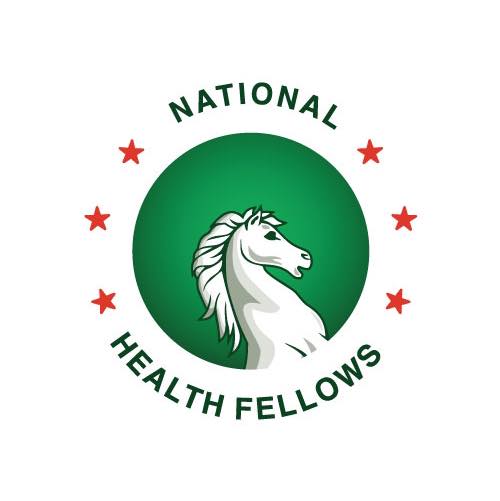
The Federal Government of Nigeria has announced a bold new initiative aimed at reshaping the country’s health sector by empowering young professionals to take on leadership roles in their communities. This initiative, known as the National Health Fellows programme, was scheduled to begin on November 1, 2025, and is designed to provide training, mentorship, and financial support to selected participants. It represents a significant step in the government’s broader vision of strengthening local health systems and cultivating a new generation of leaders who can drive innovation and transformation across the nation.
The announcement has generated considerable excitement among young Nigerians, particularly those between the ages of 25 and 35, who are eligible to apply. According to officials, “the programme is part of the Nigeria Health Sector Renewal Investment Initiative SWAp Coordination Office under the Federal Ministry of Health and Social Welfare.” This office has been tasked with implementing reforms through a sector-wide approach, ensuring that investments, donor support, and government funding are aligned to achieve systemic improvements in healthcare delivery nationwide. By situating the fellowship within this framework, the government is signaling its commitment to long-term transformation rather than short-term fixes.
The fellowship itself is structured to last twelve months, during which participants will undergo intensive training and mentorship. They will also engage in fieldwork designed to strengthen local health systems. As the announcement explained, “selected fellows would undergo intensive training, receive mentorship, and gain leadership experience. They would also be exposed to best practices within Nigeria’s health space.” This combination of classroom learning and practical experience is intended to ensure that fellows not only acquire theoretical knowledge but also develop the skills necessary to apply that knowledge in real-world contexts.
One of the most attractive features of the programme is the stipend that fellows will receive to support their living expenses. This financial support is crucial, as it allows participants to focus fully on their training and fieldwork without the distraction of financial insecurity.
The government has emphasized that while anyone within the age bracket may apply, preference will be given to those who reside in the local government area they are applying for. This approach is designed to ensure that fellows are deeply rooted in the communities they serve, thereby increasing the likelihood of sustainable impact.
The programme builds on the success of previous cohorts, which, according to organizers, “made a significant impact, helping to transform healthcare delivery within their communities.” By expanding the fellowship to reach more local governments, the government hopes to replicate and scale these successes across the country. The emphasis on diversity is also notable, as the fellowship is open to individuals from fields beyond health, including Information Technology and Social Sciences. This reflects an understanding that healthcare challenges are multifaceted and require interdisciplinary solutions.
The broader context of this initiative is the Nigeria Health Sector Renewal Investment Initiative, which has been described as a strategic unit under the Federal Ministry of Health and Social Welfare. Its role is to oversee reforms through a coordinated approach, aligning donor support, government funding, and policy efforts.
The office has already been managing flagship programmes like the National Health Fellows, which focus on building leadership capacity and driving innovation. By embedding the fellowship within this larger initiative, the government is ensuring that it contributes to systemic transformation rather than functioning as an isolated project.
The announcement of the fellowship comes at a time when Nigeria is grappling with significant challenges in its health sector, including inadequate infrastructure, shortages of skilled personnel, and uneven access to services across different regions. By investing in young professionals, the government is betting on the power of human capital to drive change. The fellowship is not merely about filling gaps in the workforce; it is about cultivating leaders who can envision and implement solutions tailored to the unique needs of their communities.
The emphasis on mentorship is particularly important. In many sectors, young professionals struggle to find guidance and support as they navigate the complexities of leadership. By pairing fellows with experienced mentors, the programme ensures that they have access to wisdom and expertise that can help them avoid common pitfalls and accelerate their growth. This mentorship component also fosters a culture of collaboration and knowledge-sharing, which is essential for building resilient health systems.
The fellowship’s design also reflects a recognition of the importance of local ownership. By encouraging applicants to serve in their own local government areas, the programme ensures that interventions are grounded in local realities. This approach increases the likelihood that solutions will be culturally appropriate and sustainable. It also fosters a sense of responsibility and accountability among fellows, who are not merely outsiders parachuting into communities but members of those communities themselves.
The announcement has also drawn attention to the government’s broader efforts to create opportunities for young Nigerians. For instance, the Nigeria Jubilee Fellows Programme (NJFP) was recently unveiled as a flagship youth employment initiative, offering a twelve-month paid internship to fresh graduates across the country.
Branded as NJFP 2.0, the programme promises a monthly stipend of ₦150,000 and hands-on experience in reputable organizations nationwide. Officials described it as a “stronger, smarter version” of the original programme, designed to connect high-potential Nigerian graduates with real-world work opportunities. The launch of the National Health Fellows programme can be seen as part of this broader strategy to harness the energy and potential of Nigeria’s youth to drive national development.
The potential impact of the fellowship is immense. By equipping young professionals with the skills, knowledge, and resources they need to lead, the programme is laying the foundation for a new generation of health leaders. These leaders will not only strengthen local health systems but also contribute to national and global efforts to improve health outcomes.
In a country as large and diverse as Nigeria, the importance of local leadership cannot be overstated. Each community faces unique challenges, and solutions must be tailored accordingly. By empowering young professionals to take ownership of these challenges, the fellowship is fostering innovation and resilience at the grassroots level.
In conclusion, the National Health Fellows programme represents a visionary investment in Nigeria’s future. It is a recognition that the country’s greatest resource is its people, and that by empowering young professionals, the government can drive systemic transformation in the health sector. As officials have stated, “the programme is designed to build a new generation of skilled and motivated health leaders.”
If successful, it will not only improve healthcare delivery but also inspire a new ethos of leadership and service among Nigeria’s youth. The launch of this fellowship is a reminder that meaningful change begins with people, and that by investing in the next generation, Nigeria is taking a decisive step toward a healthier, more prosperous future.





